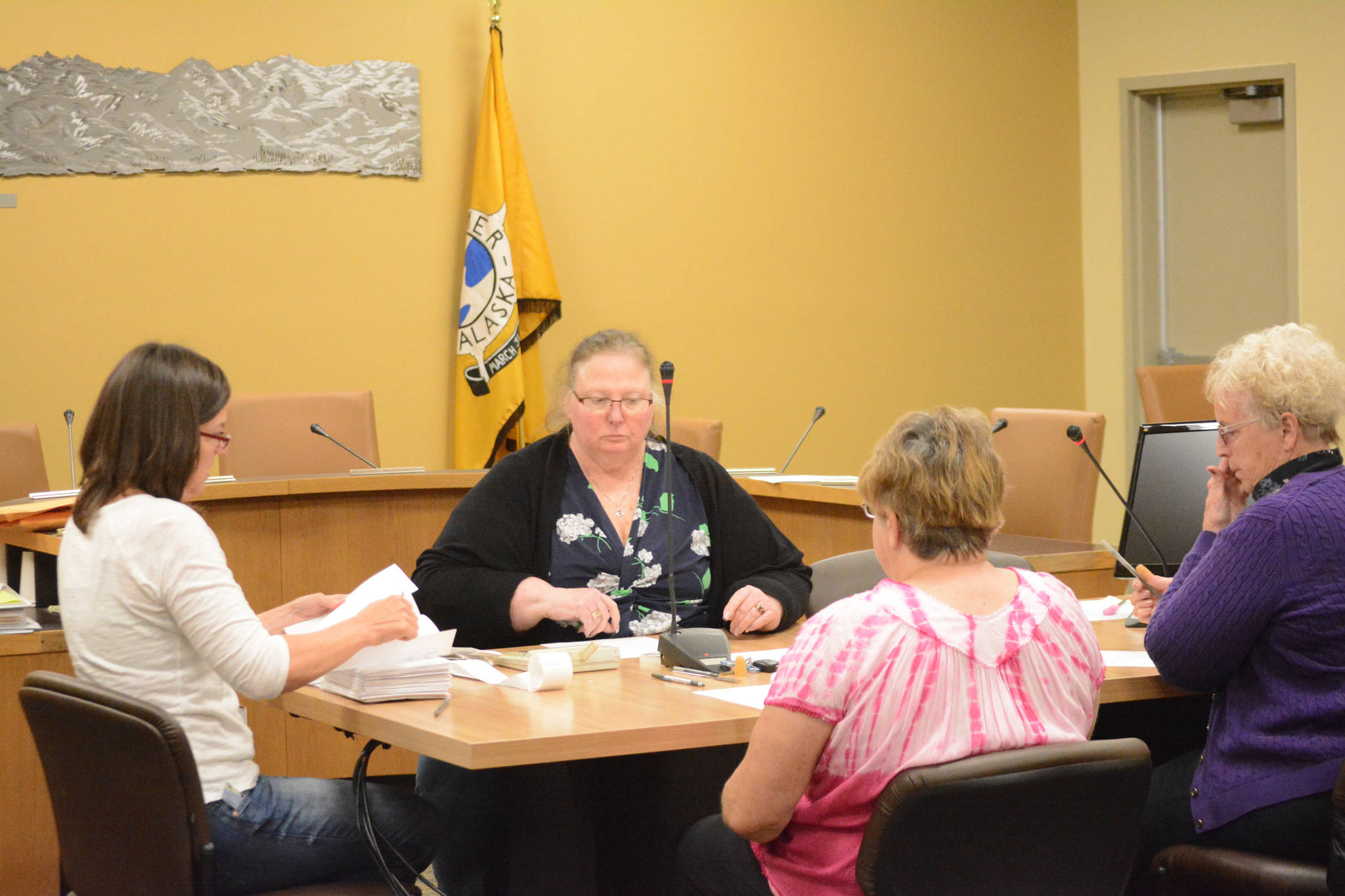The first rule in filing an ethics complaint with the city of Homer is that you don’t talk about filing an ethics complaint. The second rule, however, is if the respondents choose to waive confidentiality, anyone can talk about it.
That’s what three Homer City Council members did last Friday when they sent out a press release saying they wish to make public an ethics complaint filed by recall organizer Larry Zuccaro against them. Zuccaro filed his complaint against council members Donna Aderhold, David Lewis and Catriona Reynolds on July 31. In a case planning conference held on Sept. 15, the three council members waived confidentiality. Under Homer’s ethics code, the complaint is being heard by an Anchorage administrative law judge. A date for the hearing has not been set, but both sides will be given the chance to make oral arguments.
The respondents waived confidentiality “so that the public could see the discussion,” Reynolds said on Tuesday.
The Homer News filed a public records request on Friday for the Zuccaro complaint. Zuccaro helped organize the unsucessful recall drive against Aderhold, Lewis and Reynolds. The recall failed in a near landslide.
In his complaint, Zuccaro alleges that by voting on Resolution 17-064, “acknowledging the results of the city of Homer Special Election held June 13, 2017,” the three council members violated Homer City Code 1.18.030(b)(1), which says “no city official or the City Manager shall participate in any official action in which: 1) the person is the applicant, a party or has a substantial financial interest in the subject of the official action.”
The Homer News attempted to contact Zuccaro at the phone number listed in his complaint, but a friend said he was in Anchorage helping with a family member. At press time Zuccaro did not return a message requesting comment.
His complaint said that at a June 19 special meeting to consider the resolution acknowledging the results, no one declared a conflict of interest, and that Lewis seconded a motion by council member Tom Stroozas to approve Resolution 17-064, the action to certify the recall election. The motion passed unanimously and without objection. In a public comment period, no one spoke against the resolution or raised the issue of a possible conflict of interest.
The resolution acknowledged the results of the election as presented by the Special Election Canvass Board. The board had met on June 16 to verify regular ballots and count absentee, special needs, questioned and absentee in person ballots. The recall failed against all three council members, with “no” votes (a vote rejecting the recall) tallying 56 percent for Reynolds and 57 percent for Aderhold and Lewis.
Zuccaro’s complaint is almost word-for-word the same as a complaint Heartbeat of Homer filed on July 3. Heartbeat of Homer was the political group formed to support the recall. Heartbeat of Homer spokesperson Sarah Vance — now a city council candidate — sent a copy of the complaint to KBBI Public Radio news director Aaron Bolton. According to a copy of that complaint sent by Bolton to the Homer News, Heartbeat of Homer’s attorney, Stacey Stone, appears to have prepared the complaint, but in an email to the Homer News, Stone emphasized that she did not release the complaint to the media.
Under city rules, if the respondents do not waive confidentiality, the complaint should be dismissed. The Homer News also asked for public records regarding the status or outcome of Heartbeat of Homer’s July 3 complaint.
“There is nothing available,” City Clerk Melissa Jacobsen said of that complaint.
Thus, like Schrödinger’s Cat in a state of quantum uncertainty, it is unknown if the complaint had been filed, if it had been sent to a hearing officer and if it had been dismissed.
In their press release, the council members cited a Homer News article of July 13 that quoted city attorney Holly Wells.
While city code says an official should not participate in an action in which they are a party, it also says under 1.18.030(c) that an official is allowed to participate “in official actions on behalf of the city or when the city itself is the applicant or subject of the action.”
In an interview in July, Wells said that in the case of acknowledging the results of an election, the party would not be the council members being challenged in a recall election, but the Canvass Board — that is, the city.
“This election process is a fundamental component of our governmental structure,” Wells said in July. “It’s simply, I think, recognizing that it has been done properly and that the steps we have done in place to protect the integrity of the election process have in fact been followed.”
Wells also pointed out that city code says the council “shall” certify the results of the election “following completion of the canvass by the Canvass Board.”
Council members have certain duties and obligations, she said, such as showing up to meetings. Another obligation is “meeting to certify an election when certain things have been done,” she said.
She also said that there would not be a conflict of interest in a council member voting to certify an election in which the council member was subject to recall — or running for re-election or for mayor.
If a council member could not vote to acknowledge the result of the Canvass Board, then logically that would mean no sitting council member could run for re-election or election to mayor and then vote on acknowledging election results — an event that happens frequently. For example, in the October 2016 election, Lewis and then council member Bryan Zak also voted to acknowledge the Canvass Board’s election results declaring Zak had won election to mayor. Zak and Lewis both ran for mayor while council members.
Reach Michael Armstrong at michael.armstrong@homernews.com.


